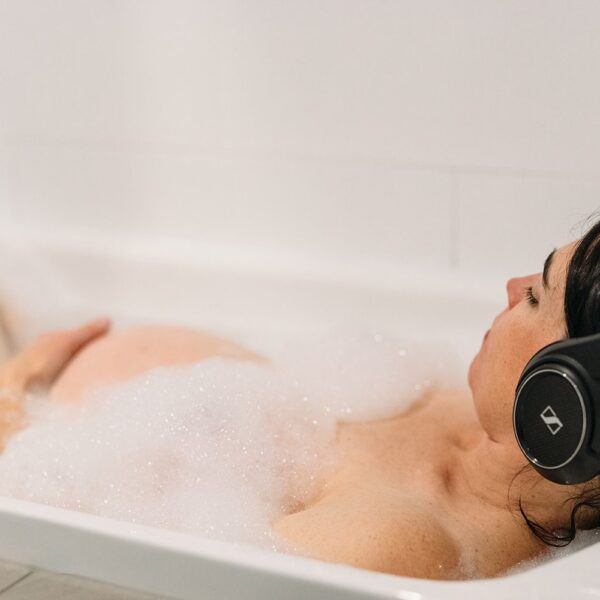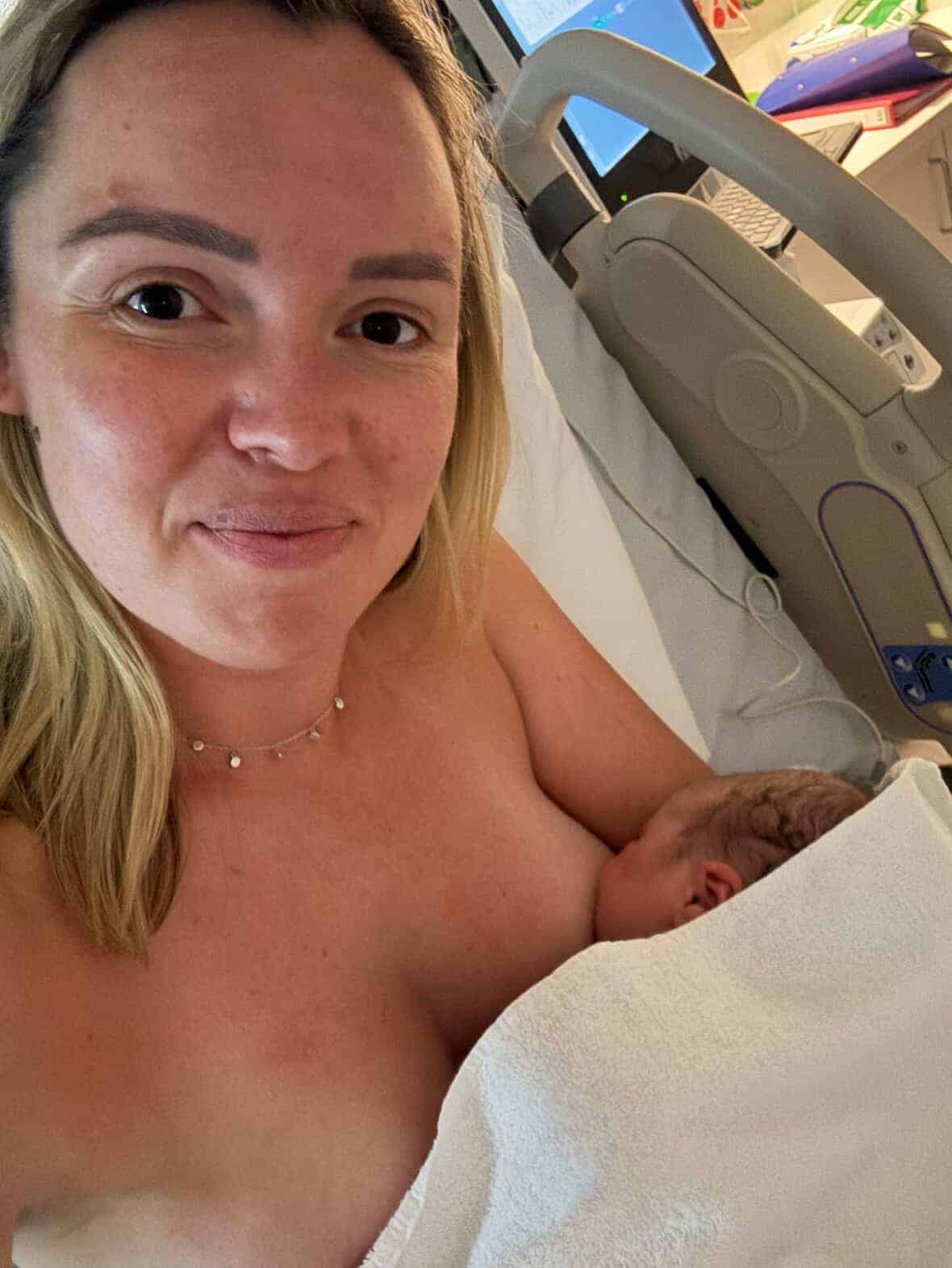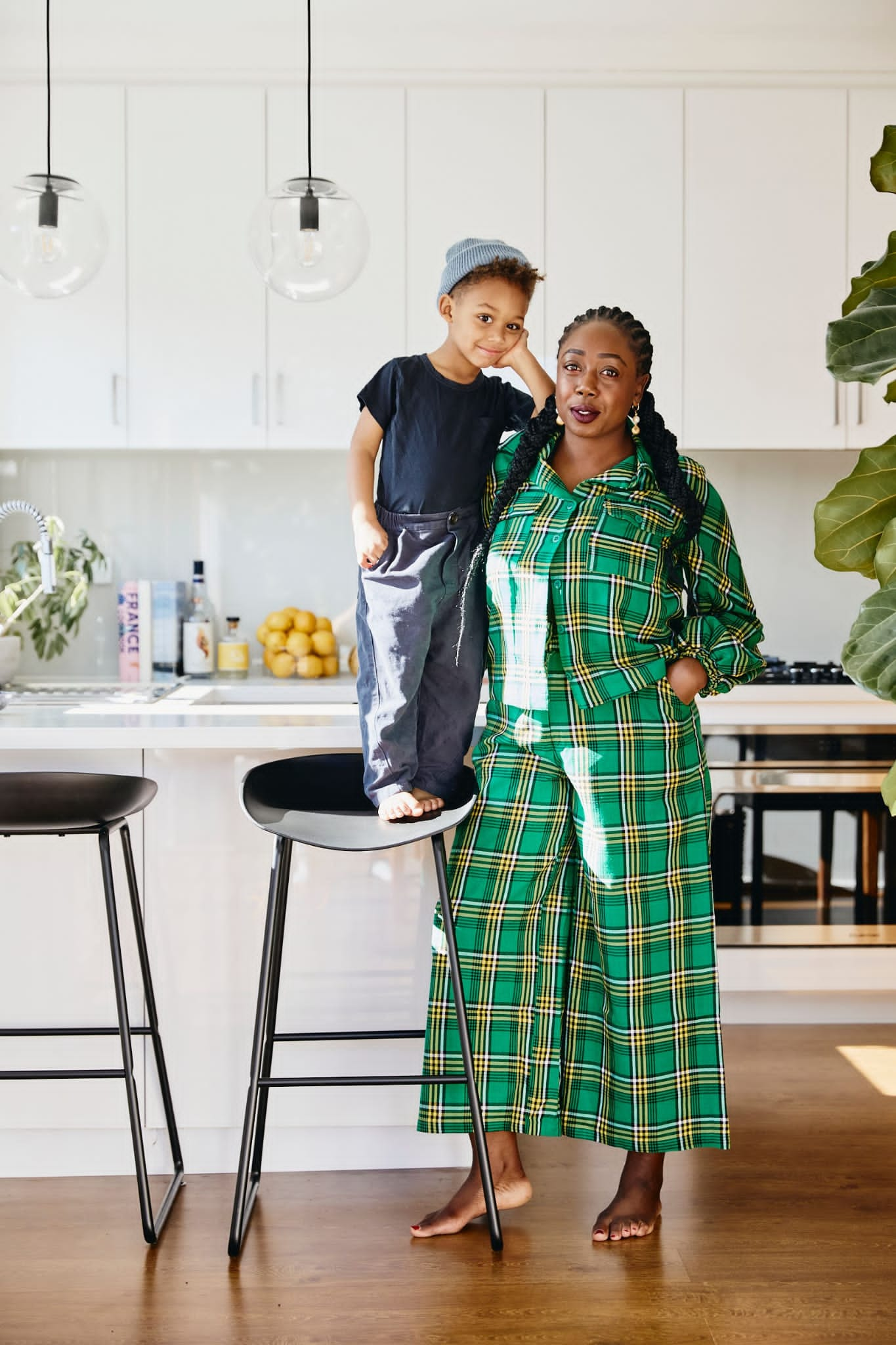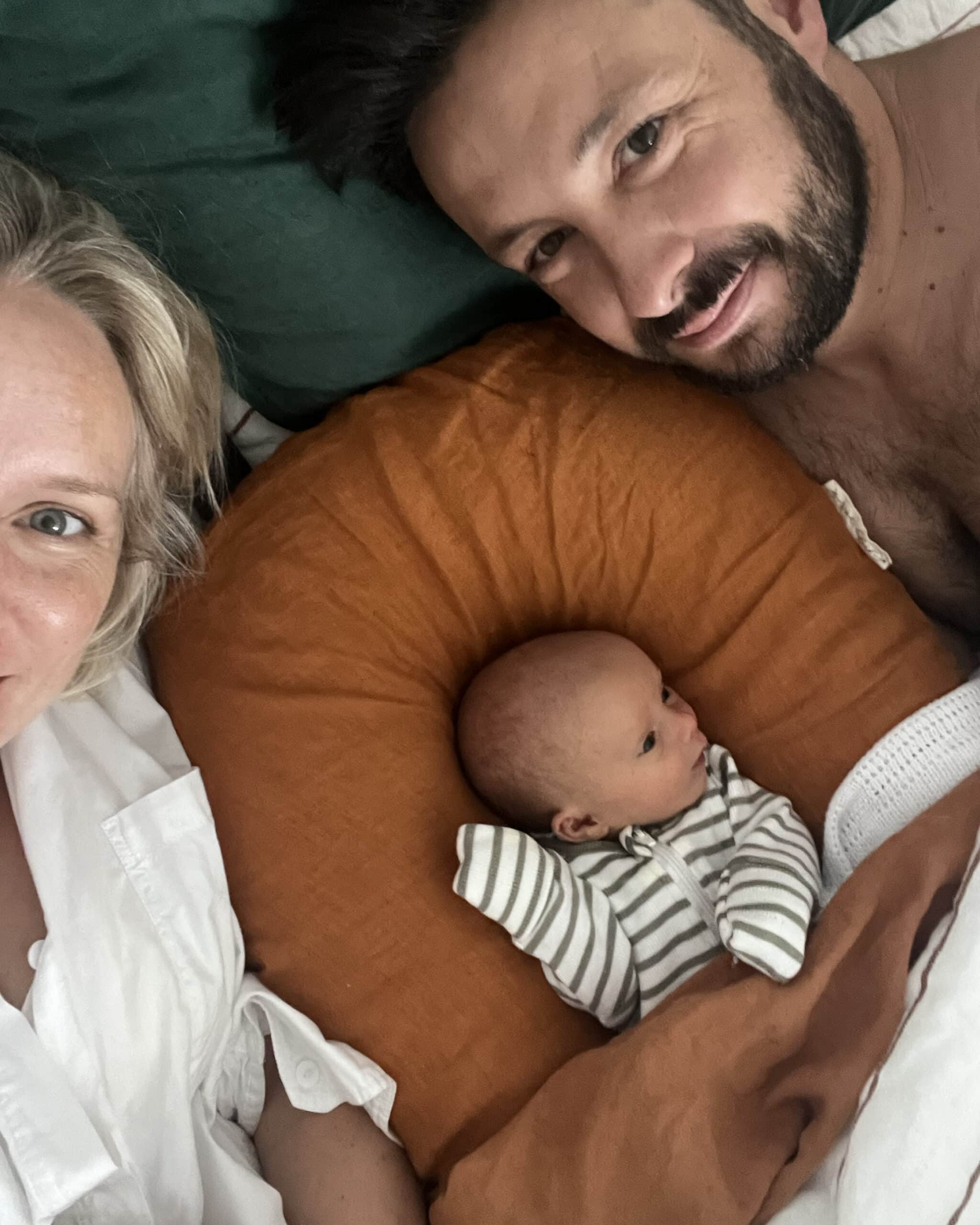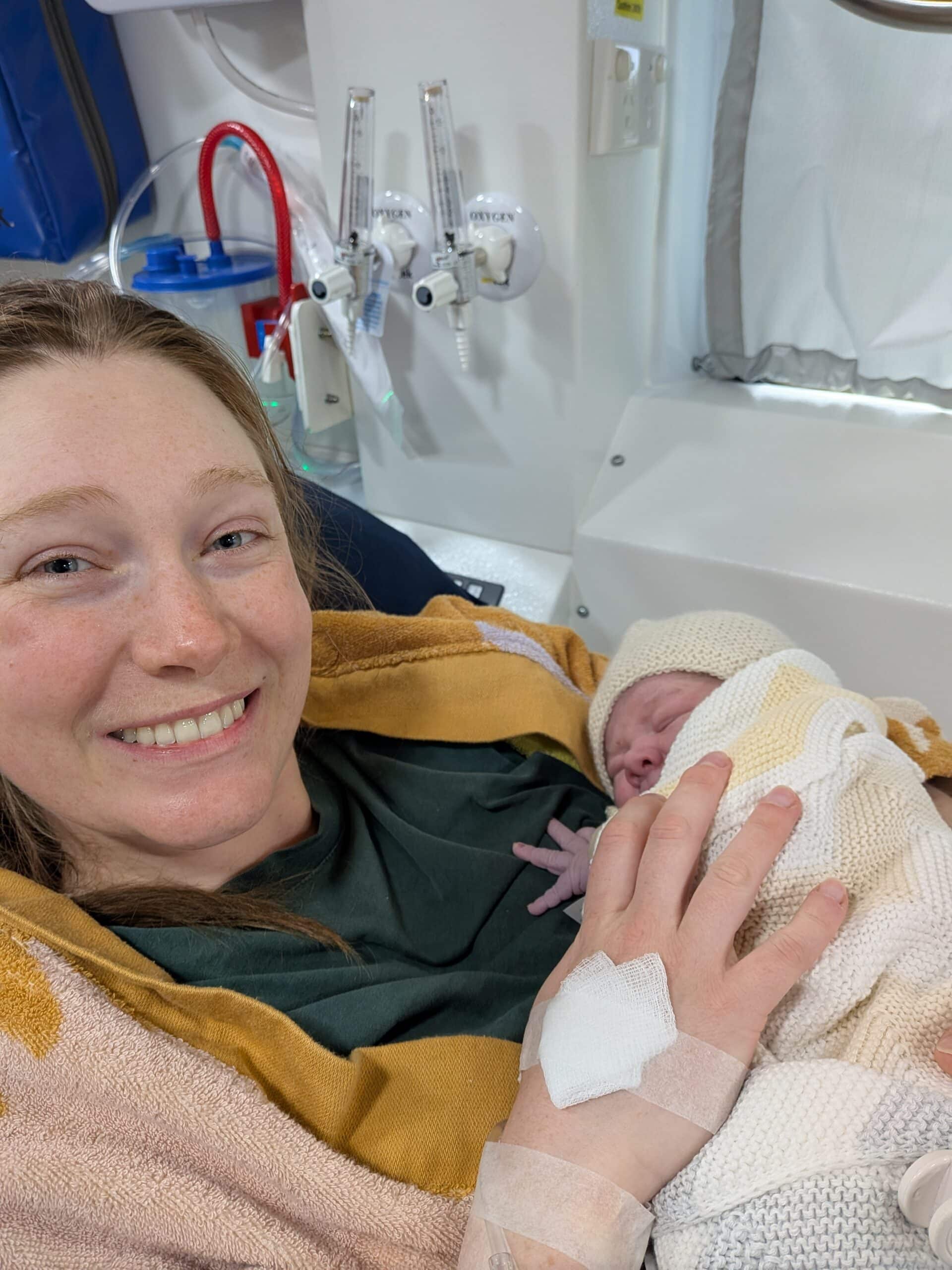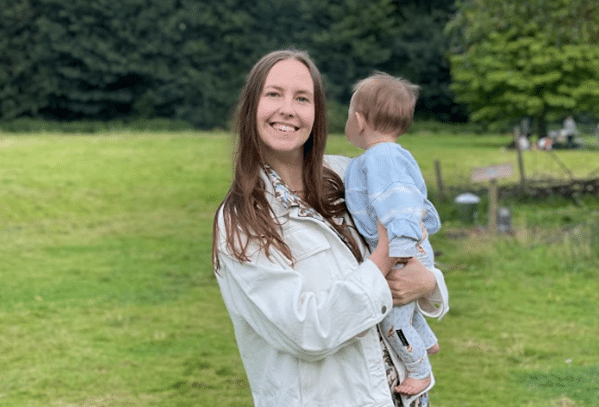Podcasts Leila | Postpartum – fraternal twins, breastfeeding twins
EPISODE 422
Leila | Postpartum – fraternal twins, breastfeeding twins
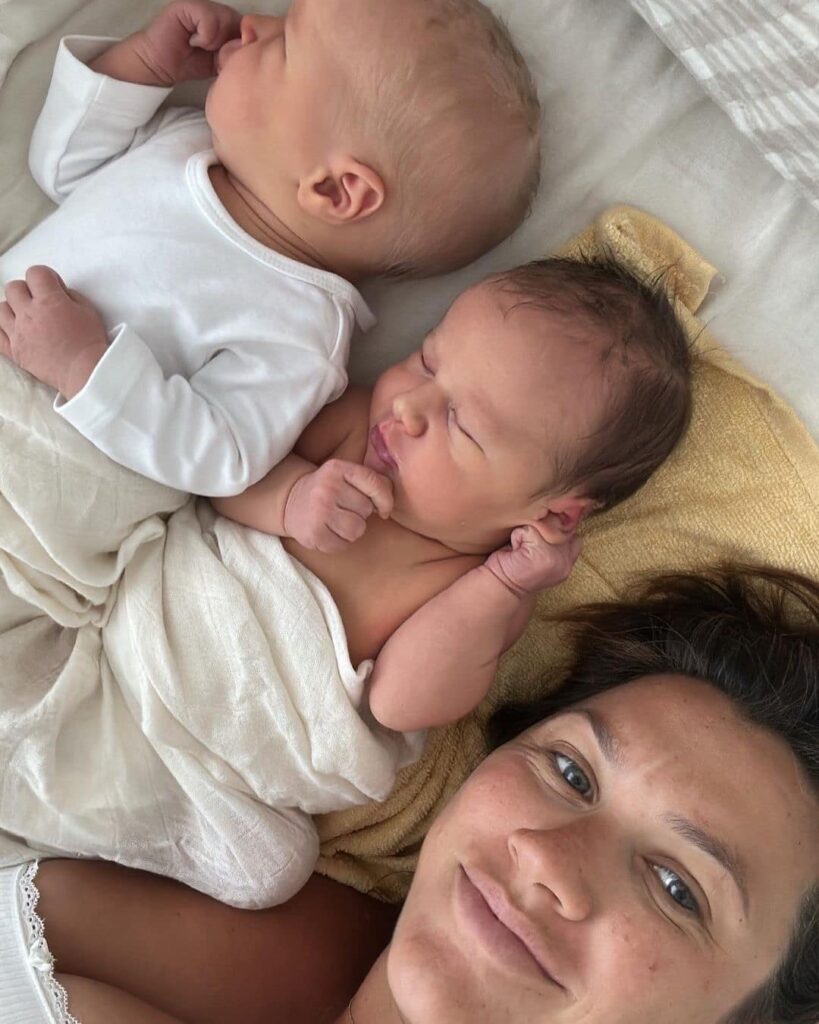
“I hired a private midwife so I knew my postpartum visits would be at home. I also hired a postpartum doula because I’ve worked as one; my friends and family were going to be holding my daughter, I was going to hold the twins and I really needed someone to step in and hold me. My postpartum doula repertoire is more focussed around the home and food but I really wanted someone who was a bit more spiritual and focussed on body treatments. The irony was that with twins it was more each of us holding a baby. My midwife came every day for a week and then she came once a week for six weeks.
“I was really excited to experience postpartum with everything I’d learnt. I honoured confinement and that was only possible because I organised for Billie, my firstborn, to be cared for. The thought of leaving the house with twins was so overwhelming for me; there’s just no way you can tandem-feed in public.
“I had a mother’s blessing which is something I really advocate for. It’s a bit more of a close-knit tight circle where you invite your closest; the women who I wanted to support me in my fourth trimester. It can be a bit woo-woo but I try not to go too far in that direction. It was just an opportunity for me to ask for help and to tell them they were welcome in my space. My doula organised a meal train and that started on my estimated due date and that was so special because I was so broken then. People underestimate how helpful a meal is.
“I had a complicated breastfeeding journey with my first so I was trying not to project that onto the twins. I was advised to learn how to attach each baby to the nipple and once I’d figured out their latches, I could feed them at the same time. I was tandem-feeding for 4-6 hours at a time; I was stuck for hours. I was recommended the twingo tandem nursing pillow which has such a thick back support so I could sit comfortably for a long time.
“I chose to bed share with the twins but a lot of the twin information online was separate cots and bassinets in separate rooms; it was quite hard to find resources around baby-led feeding and co-sleeping. I decided I’d go with the flow and planned to reach out to a lactation consultant if I needed help. Both the boys had shocking latches and slow weight gain and limited output. Noah was really colicky and quite difficult so I got a IBCLC to work with me and she noticed that they both had tongue and lip ties and I got the tongue ties fixed. I also got donor milk as they needed to be topped up but I never had time to pump so a local mum dropped some breastmilk around every day.
“There was one night when Noah was screaming and just wouldn’t settle and he actually had a temperature; so too did Joey. I knew that if a baby under three-months-old has a temperature you need to go to hospital so we bundled them in the car and took them straight to emergency. They were quite concerned because their swabs for covid and flu were negative and they had a lumbar puncture and urine tests to investigate what was going on. They ended up having a virus and we stayed for three nights and I had a few moments when I felt like we were going to lose Noah. They had really high heart rates, really high temperatures and they were very unsettled and the head paediatrician did disclose that he was quite worried about Noah. There were constant alarms, observations every 15 minutes, and I was just so overwhelmed and emotional. I was pumping around the clock and feeding, I always wore socks and slippers to stay warm and friends dropped bowls of congee and herbal tea to the hospital. When we were home I just went straight to bed with lots of rest and skin-to-skin.
“At the three-month mark the support slowly dropped away and it was a rude awakening. But at four months I felt like I had a pep in my step and everything felt a bit easier. I was wearing both boys in a carrier for 3-5 hours a day. I saw a pelvic floor specialist in pregnancy and I did my exercises and I didn’t have any heaviness or dragging. But at four-months I stepped out of the shower and I felt a bit of bulging which freaked me out completely but then I woke up in the morning and it felt completely fine. And then a few days later it came back so I went to see my pelvic floor physio and she said that they actually don’t diagnose a prolapse in the first twelve months postpartum because there’s so many hormonal changes that you may have one in week 14 and it may be completely fine eight weeks later. She examined me while I was lying down and she told me it wasn’t that bad and then she did a standing examination and she could feel it. She booked me in for a pessary fitting and encouraged me to do all the things to get symptomatic. After doing my pelvic floor exercises religiously and having specific acupuncture treatments my pelvic floor improved significantly in the three weeks between that appointment and my pessary fitting but I decided to go ahead with it anyway because I felt like it’s something I’ll use if I’m going to go dancing or go for a run; just a preventative support.”
Leila’s tips for twins:
- You’ve really got to surrender; everyone tells you to sync your twins; you can try but I don’t think you can put any baby on a schedule in the first six weeks – just roll with it.
- I wish that I had pumped earlier on a hospital grade pump; I don’t think oversupply is such an issue when you’ve got twins because there’s always a baby to feed. I wish I had pumped earlier to build up my freezer stash because I didn’t have anything to lean on for top-up feeds, hence why I used
- Get a twin carrier, I use the mini-monkey carrier
- If you’re going to breastfeed, reach out to a lactation consultant and invest in the twingo breastfeeding pillow
- It really is intense but you’ll also feel like you’ve won the lottery with twins
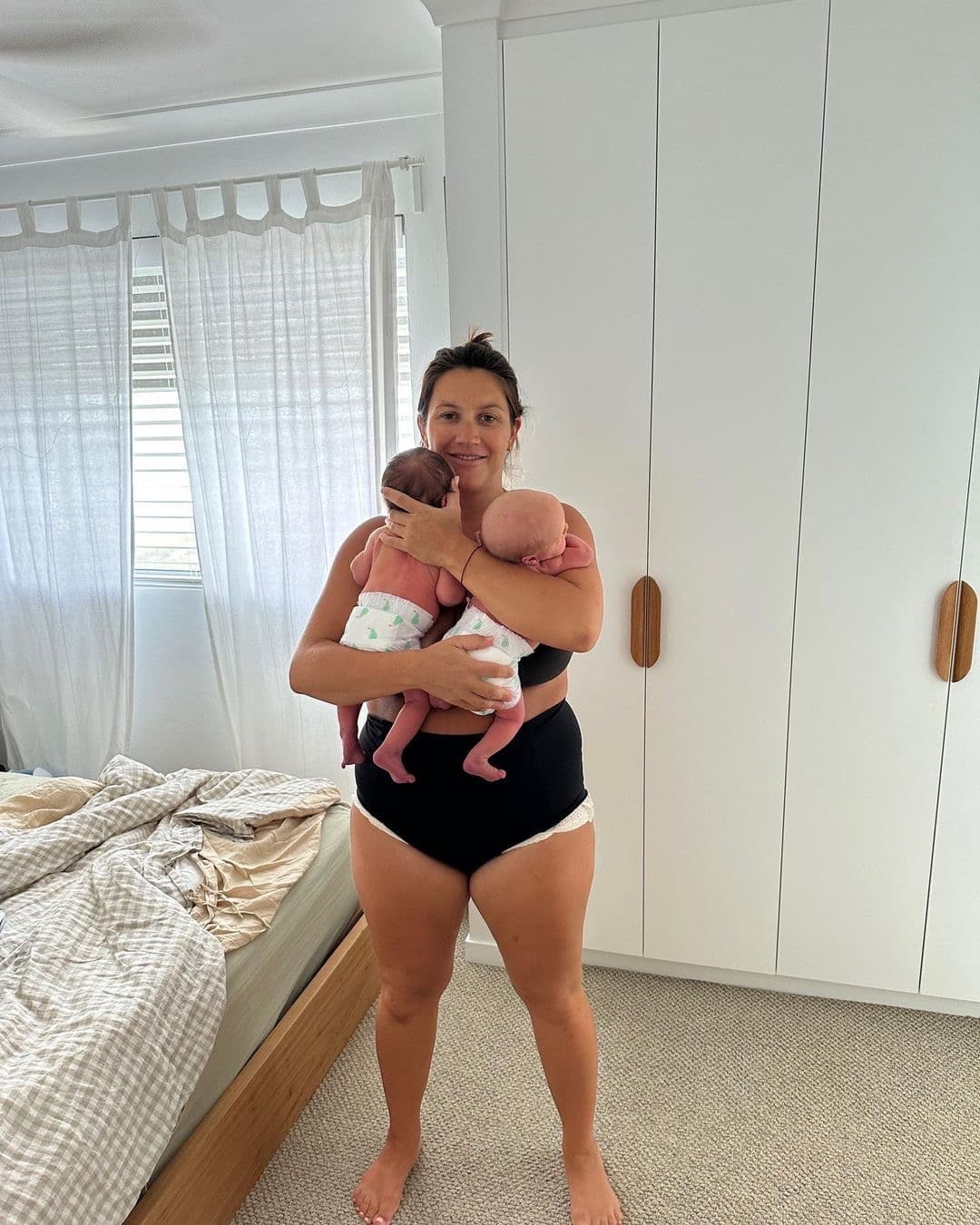


Topics Discussed
breastfeeding twins, Fraternal twins, Postpartum doula
Episode Sponsor
This episode is brought to you by The Birth Class, my online childbirth education course.
Featuring 10 audio lessons with perinatal health specialists, you can listen from the comfort of your home when you’re relaxed and receptive to new information. The Birth Class is a conversation starter between you and your birth partner that informs, encourages and empowers you to journey towards labour with knowledge and confidence.
In The Birth Class you’ll be guided through every stage of labour and birth, including:
– the powerful role of your hormones to prompt contractions and moderate pain
– what to expect from each stage of labour; from the first contraction to birthing your baby and the placenta
– practical breathing and sound skills to help you navigate contractions and overwhelm
– the benefit of staying active in labour and how it can assist cervical dilation
– how optimal maternal positioning in late pregnancy can encourage your baby into an ideal birth position
– how to prepare for a successful vaginal birth after caesarean (VBAC)
– your pain-relief options, both non-pharmacological and pharmacological
– the risks and benefits of birth interventions and how they can help or hinder labour
– typical complications that lead to an emergency caesarean and what’s involved in the process
– what to expect in the hours after birth, including breastfeeding and blood loss
– breastfeeding advice to guide you through the fourth trimester with confidence.
– and so much more.
Categories
Related Products
-
Birth Meditations
$49.00Narrated by Sophie Walker, these soothing and informative meditations help you feel supported and confident around birth.
Join the conversation
Sign up to get the latest updates, freebies, podcast releases straight into your inbox
@AustralianBirthStories
Follow along with us
@AustralianBirthStories
Follow along with us
@AustralianBirthStories
Follow along with us
@AustralianBirthStories
Follow along with us
@AustralianBirthStories
Follow along with us
@AustralianBirthStories
Follow along with us
@AustralianBirthStories
Follow along with us
@AustralianBirthStories
Follow along with us
@AustralianBirthStories
Follow along with us
@AustralianBirthStories
Follow along with us
@AustralianBirthStories
Follow along with us
@AustralianBirthStories
Follow along with us
